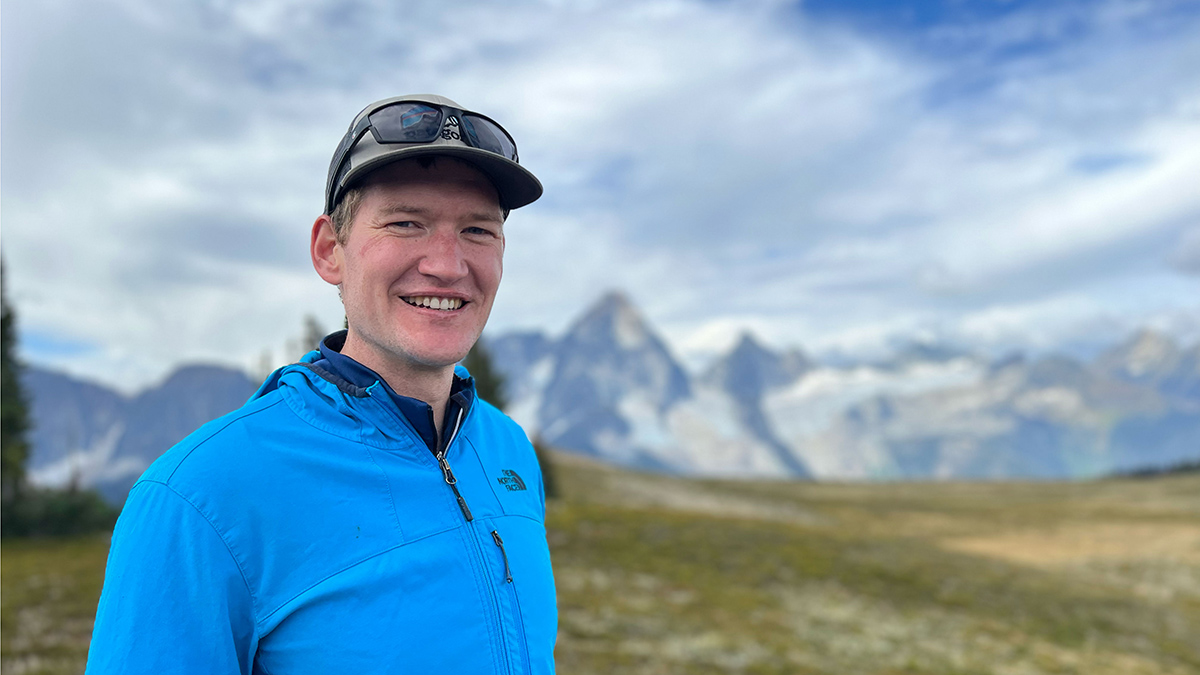A ski racer by the age of six, Jeff Massey has been searching for snow nearly his whole life. “I was tracking snowstorms and nor’easters much more than a first grader should,” he said. When he was in elementary school, his mother took him to visit a local TV meteorologist, who explained how weather forecasting worked.
“After that, I knew that’s what I wanted to do,” Massey said.
As an undergraduate at Cornell University, Massey studied atmospheric science, then went on to complete a Ph.D. at the University of Utah, studying the impacts of dust events on snow and completing a dissertation focused on weather modeling. He helped other researchers with projects related to snow, too.
After graduate school, Massey mulled over whether he should stay in academia or work in industry. He chose a role supporting a weather data platform for farmers run by the Climate Corporation, an agricultural technology company. He was pleased to find that what he loved about academia—the opportunity to produce original, unique research—was part of the job there, too, with the added benefit that his research had a direct application to farmers’ operations.
“I’ve done agriculture, I’ve done drone delivery, and now I’m doing finance. It’s interesting how related it all is.”
Massey then moved into roles at Amazon, where he used his weather modeling expertise to inform the company’s supply chain operations and, later, to build a new weather modeling infrastructure for Amazon’s drone delivery service.
Now he wields his atmospheric science skills to project how weather might affect certain energy and commodity markets for Squarepoint Capital, an investment firm.
“I’ve done agriculture, I’ve done drone delivery, and now I’m doing finance,” he said. “It’s interesting how related it all is—it’s all just different applications of weather data, machine learning, and programming.”
Businesses will need more weather expertise as climate change progresses and the economic impacts of extreme weather add up, he added. “Weather is still one of those variables you can’t control.”
—Grace van Deelen (@gvd.bsky.social), Staff Writer
This profile is part of a special series in our August 2025 issue on science careers.


